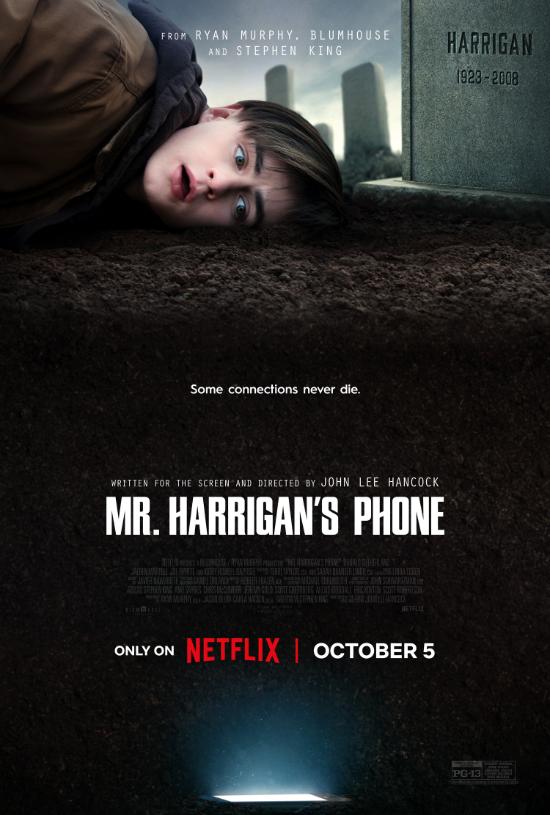Mr Harrigan’s Phone brings a new meaning to “the line’s gone dead”.
The horror in Mr Harrigan’s Phone is horror on silent mode. It’s not the sort that comes from things that go bump in the night, but a more subtle, more insidious dread: the horror of connectivity without conscience. Stephen King returns to the perils of modern communication with Mr Harrigan’s Phone, the second adapted story to turn a mobile phone into an instrument of unease. But where cell lost connection with a 3G zombie apocalypse, Mr Harrigan’s Phone offers a more genteel, intimate look at the ubiquitous devices’ effects on our psyches.
Jaeden Martell plays Craig, a thoughtful small-town teenager who reads aloud to wealthy recluse Mr Harrigan (Donald Sutherland). Their unlikely friendship becomes a kind of moral apprenticeship, with Harrigan dispensing the sort of sharp-edged wisdom Sutherland can deliver with such gravitas. Following a small lottery win, Craig gifts his employer a smartphone, a device he slips into the old man’s coffin when he passes away. But when Craig discovers he can still communicate with Mr Harrigan via the phone, his messages start to have consequences in the real world.
Hancock’s direction resists the temptation to turn this into a conventional ghost story, the narrative unfolding with the restraint of a drama, where grief, guilt and the wounded desire for retribution lurk beneath the surface. It’s closer in spirit to Stand by Me than Pet Sematary, concerned more with how a boy learns to live with loss and anger than with who’s haunting his signal. When Craig discovers that sending a message to his deceased mentor yields disturbing results, the film leans into quiet unease rather than incident, finding its strength in ambiguity.
Sutherland, with that silken, sardonic drawl, makes Harrigan a compelling enigma; part mentor, part mirror of the adult cynicism Craig will inherit. Martell matches him beat for beat, anchoring the film in sincerity even as its premise veers toward allegory. There’s an elegance to their scenes together, a melancholy recognition that both man and boy are out of time in different ways.
Where Hancock diverges most sharply from King’s novella is in how it handles guilt. In print, the story is told from the perspective of an older Craig reflecting on the consequences of his youthful actions, and the haunting isn’t just supernatural, but moral. The short story leaves little doubt that Craig’s phone calls to Harrigan’s grave have tangible, deadly effects, forcing him to confront the ease with which righteous anger erodes into something darker but the film strips away that self-reproach, keeping us in the moment with a younger, more innocent Craig. The result is less confession than elegy, swapping unease for melancholy. If Mr Harrigan’s Phone frustrates, it’s because it hints at a darker path than it’s willing to tread. The novella ends with the suggestion that Craig has inherited Harrigan’s cynicism; but the film ends with him simply learning to move on, but within that softened conclusion lies something noble: a quiet acknowledgement of how every generation must make peace with the ghosts of its own making. Like many of King’s more sombre adaptations, it finds its fascination not in what happens, but in who it happens to.











